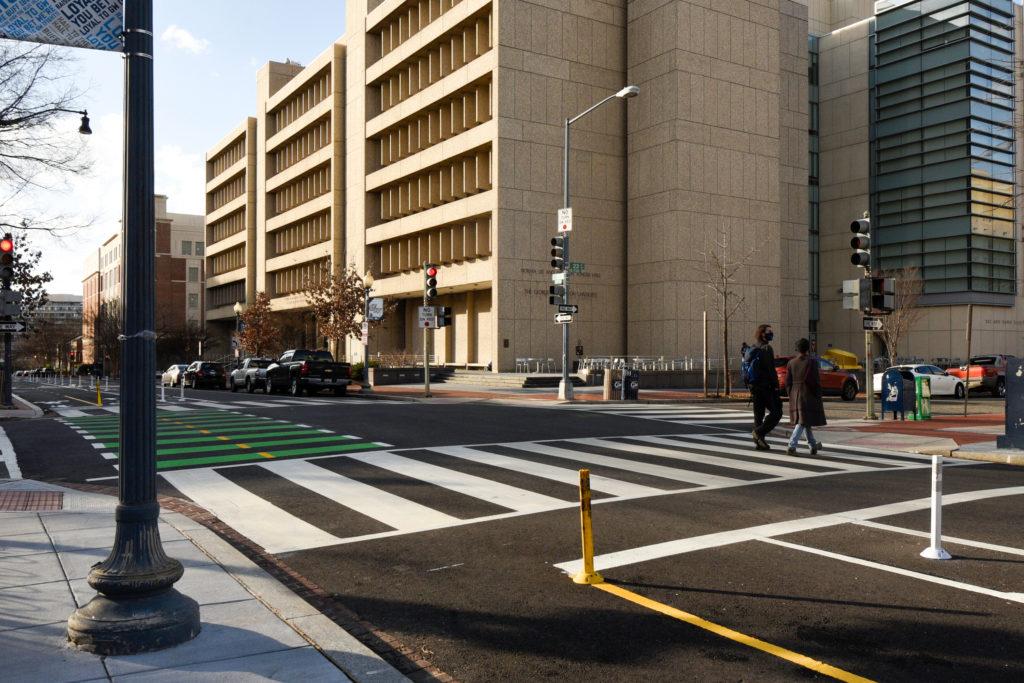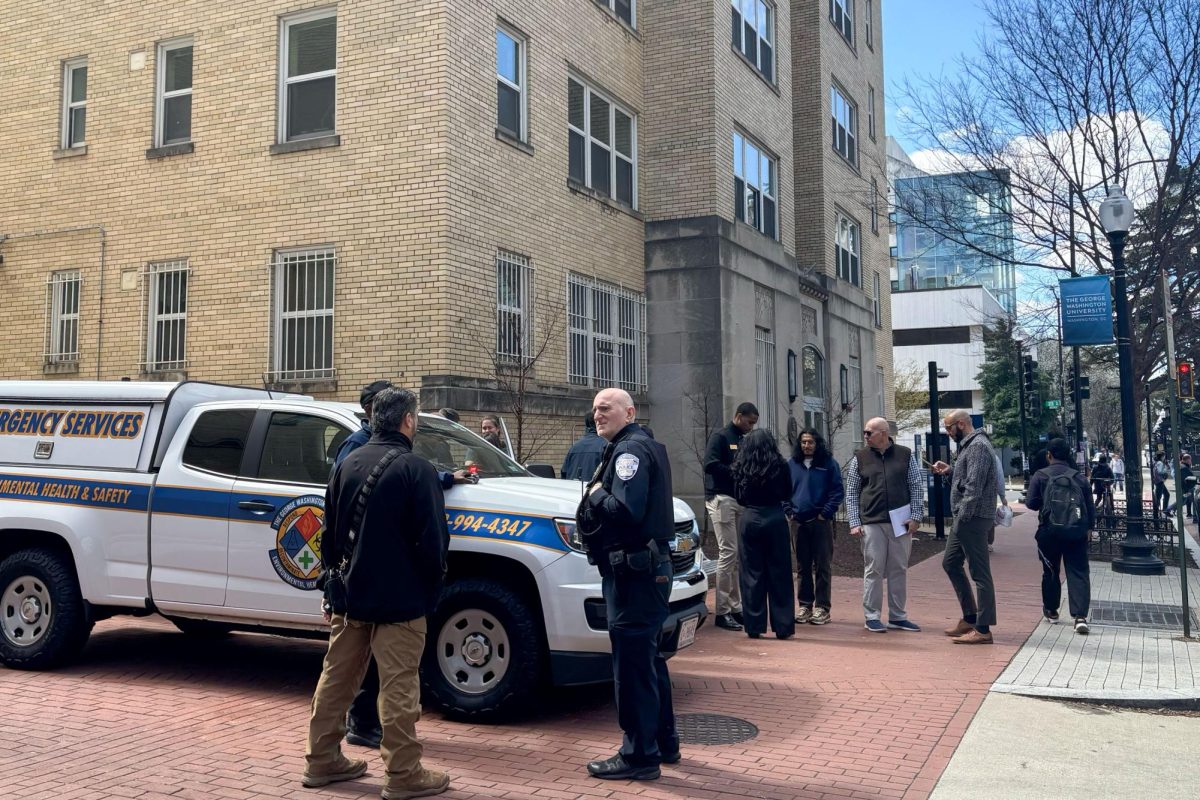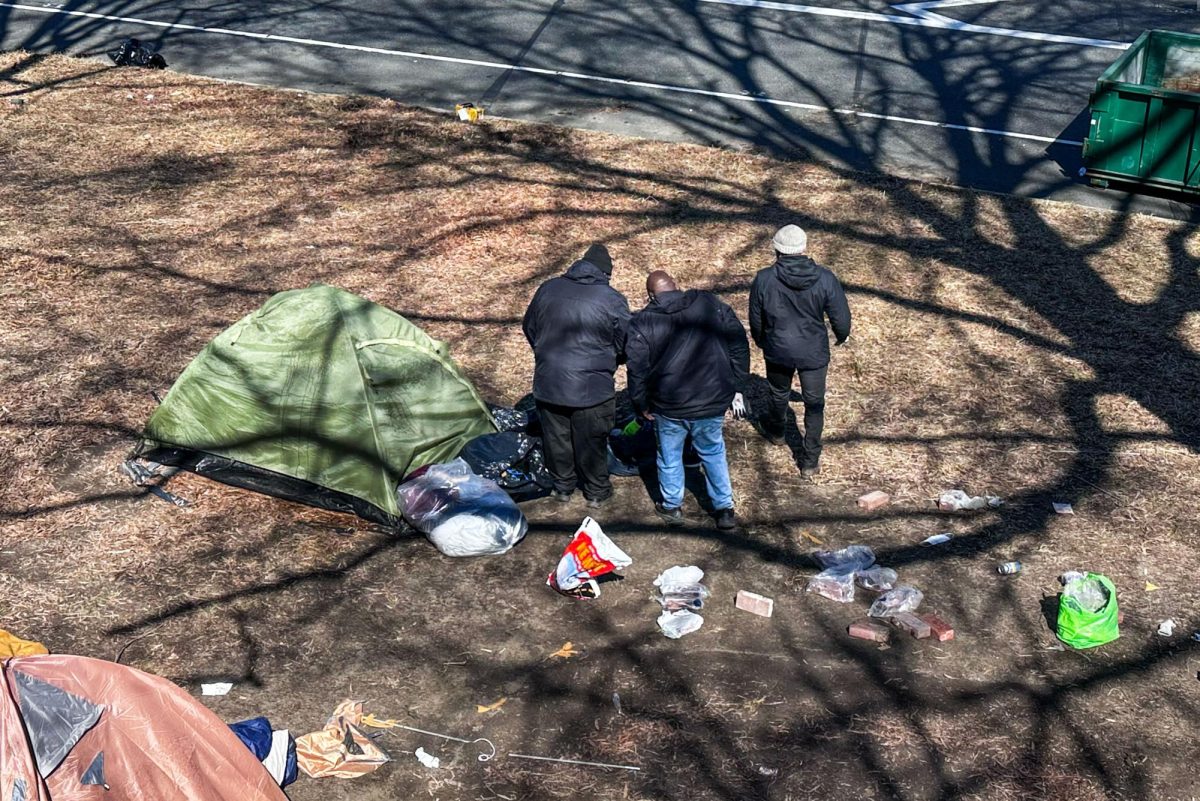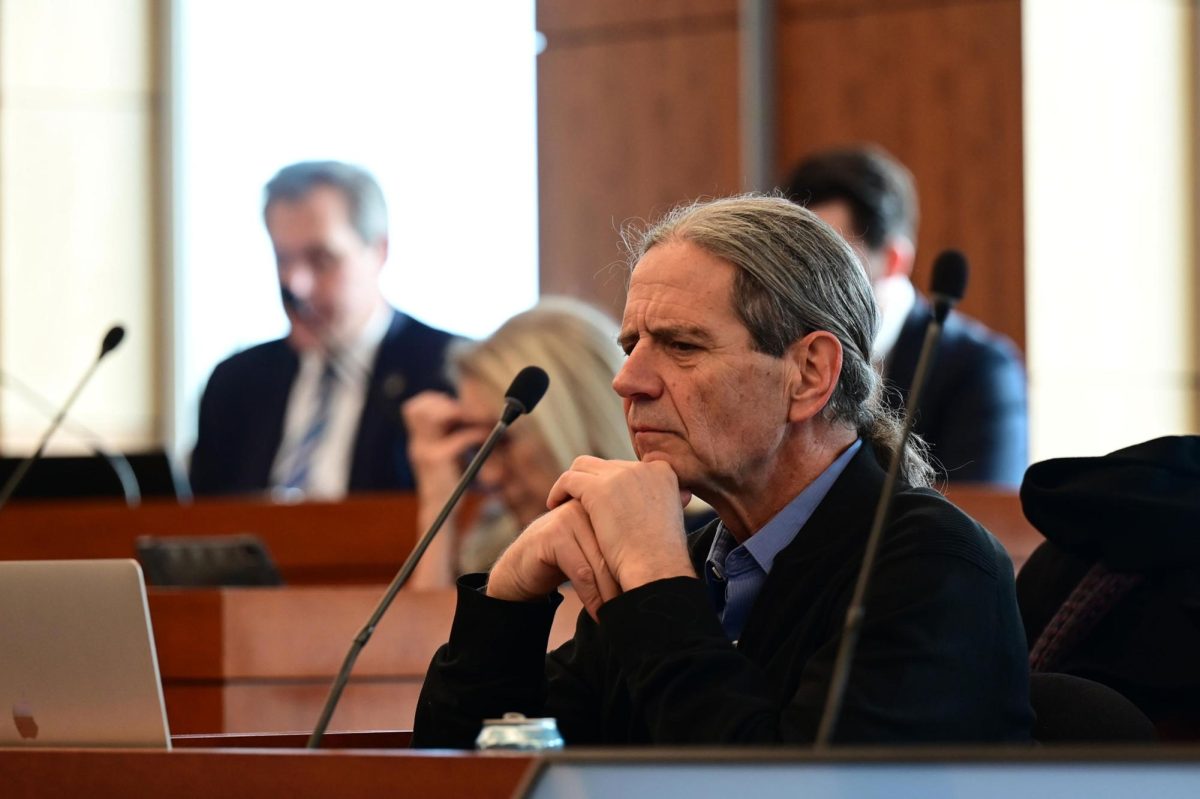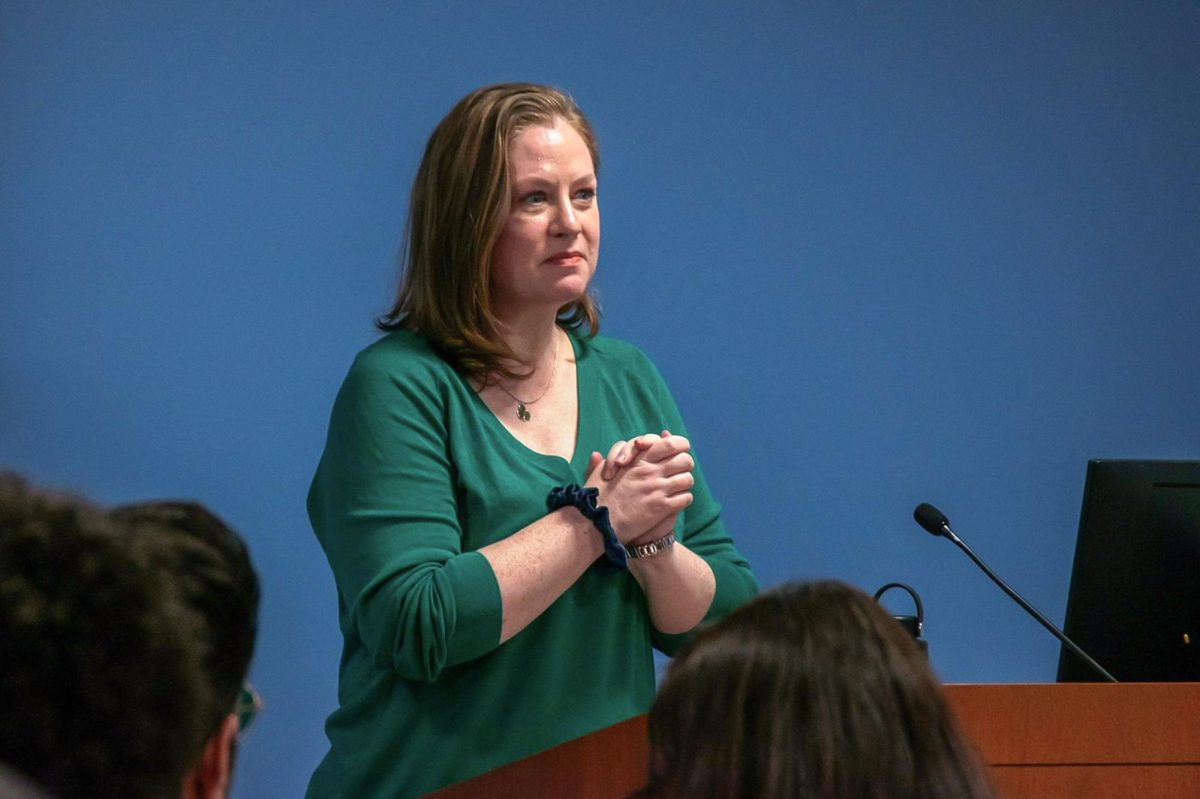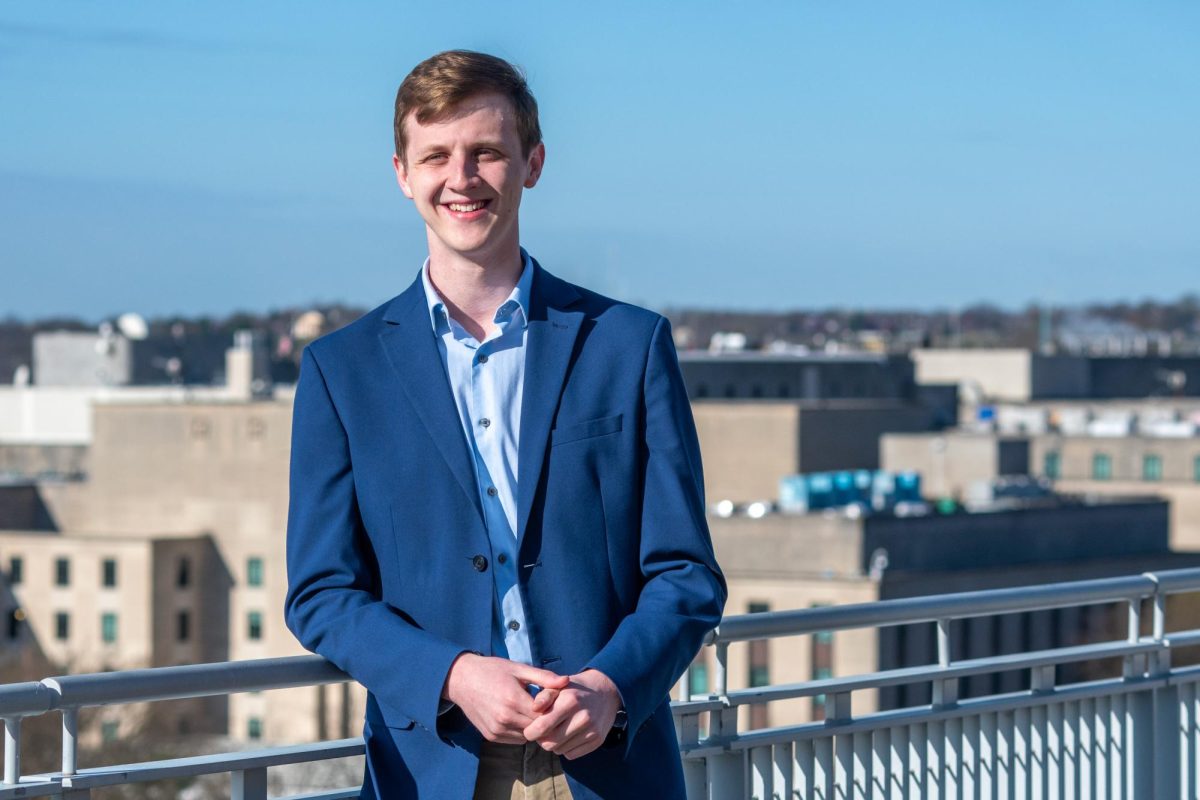Members of the Foggy Bottom and West End community requested funding from the D.C. government for additional policing, traffic safety measures and services for unhoused and elderly people at a meeting Tuesday.
Ward 2 Councilmember Brooke Pinto held the Ward 2 Community Budget Meeting to gather feedback on priorities for the District’s fiscal year 2025 budget. Foggy Bottom and West End residents in attendance requested funding to support local businesses and enforce noise ordinances.
“We are in this process together, and I want to ensure that I am reflecting what our Ward 2 community wants to see most in our city’s budget,” Pinto said during the meeting.
Foggy Bottom Association President John George said the community would support budgets that will support unhoused people in the neighborhood, including the proposed homeless shelter in The Aston, a former GW residence hall. He said the community also supports funding for increased police patrol in Foggy Bottom and West End and other programs to reduce crime.
George said he would like funding to cover startup costs and the salary of an executive director position for a potential Main Street Program in the neighborhood, which would support local businesses. A study released last month recommended the Foggy Bottom Association oversee the program in the neighborhood.
Resident Matthew Lawlor said a group of residents on the South side of Foggy Bottom supports up to $100,000 for the installation of noise cameras that would improve traffic safety and reduce noise. Pinto introduced the Vehicular Noise Reduction Act last year that would pilot the cameras, which operate similarly to speed cameras and are activated when they record loud sounds.
The D.C. Council has not yet held a hearing on the proposed legislation. New York City and Chicago have implemented the cameras.
Denise Snyder, the executive director of the Foggy Bottom-West End Village — one of 13 villages across the District that helps elderly residents remain in their neighborhoods — requested the same amount of funding in FY 2025. Snyder said the District village program volunteers will socialize with and provide rides to medical appointments for residents.
“The villages provide critical support for older adults in our city and help ensure that they remain engaged in their communities,” Snyder said. “We provide services that no other agency can match.”
The D.C. Council commenced agency performance oversight hearings, where members of the public can testify, on Thursday. These hearings will continue through March 1, and Mayor Muriel Bowser will release the proposed budget in late March.


